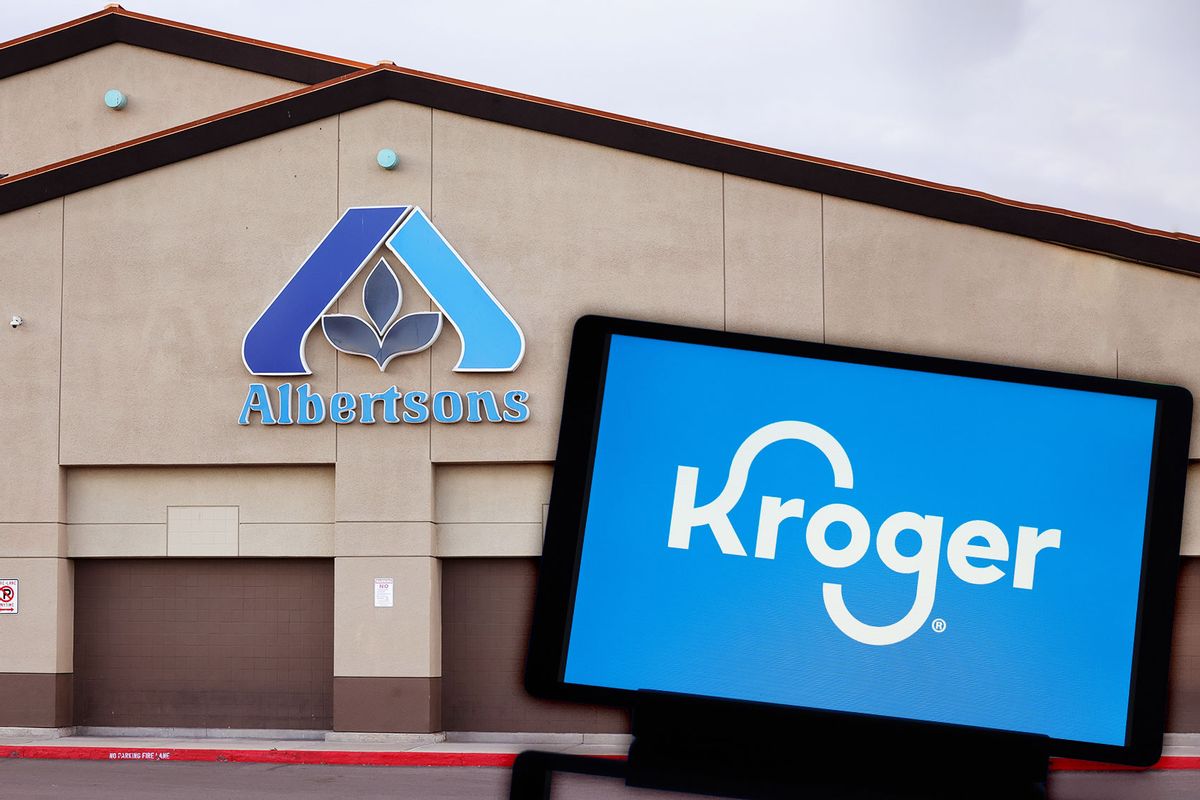Following the dissolution of the proposed Kroger-Albertsons merger, both grocery giants are undergoing structural changes. The $24.6 billion deal, which would have been one of the largest supermarket mergers in U.S. history, was halted by regulatory intervention in December 2024. Now, both companies are focused on restructuring operations and trimming costs in response to shifting market conditions.
Albertsons: Cost-cutting and corporate restructuring
Albertsons has announced plans to cut $1.5 billion in spending over the next three years. As part of these efforts, the company is implementing layoffs and reorganizing its corporate structure. Later this month, nearly 400 corporate employees at Safeway, an Albertsons subsidiary, will be laid off.
The company has also begun a divisional restructuring process. Albertsons confirmed to multiple publications, including Grocery Dive and Supermarket News, that it is merging its Intermountain Division, which includes Idaho, Montana and Wyoming, with its Denver Division, which covers Colorado and surrounding states. The newly formed Mountain West Division will streamline operations and, according to Albertsons, allow for “strong local operational excellence” while leveraging the company’s scale.
A spokesperson for Albertsons stated, "As we continue to evolve and enhance our retail operations, a core part of that effort is ensuring our organizational structure properly enables strong local operational excellence across the regions we serve and also leverages our size and scale. We are placing some of our best leaders in new roles, providing new opportunities for our team, and continuing to deliver on our strategy to earn customers for life."
BoiseDev reported that John Colgrove, current head of the Intermountain Division, will leave the company this summer, with Brad Street, currently leading Seattle operations, taking over the new division.
This restructuring extends beyond the Mountain West Division. Albertsons is reportedly reorganizing itself into three broad regions: East, West and California. The company has emphasized that these changes are aimed at improving efficiency and operational effectiveness.
The reorganization follows a series of cost-cutting measures, including job cuts within its corporate and division support workforce. “As we continue to evolve and enhance our retail operations, a core part of that effort is ensuring our organizational structure properly enables strong local operational excellence across the regions we serve and also leverages our size and scale,” an Albertsons spokesperson told Supermarket News.
We need your help to stay independent
Leadership fallout from merger failure
The failed merger has had leadership ramifications, too. Todd Broderick, former head of the Denver Division, retired last year following allegations that he deleted text messages related to the merger.
As reported by the Oregonian, the Federal Trade Commission alleged four Albertsons executives — including Broderick and CEO Vivek Sankaran — destroyed text messages “that might have figured into the government’s case against the planned acquisition by Kroger.” Broderick acknowledged that he may have deleted messages unintentionally but denied wrongdoing.
Kroger: Office job cuts and strategic shifts
Meanwhile, Kroger has also initiated some structural changes. The Cincinnati-based supermarket giant has cut jobs at three major office sites, including its headquarters, one of its data analytics divisions and its Technology & Digital team in Blue Ash, Ohio. While Kroger has not disclosed the exact number of layoffs, sources cited by the Cincinnati Business Courier estimate the number to be in the “couple hundred” range.
Unlike Albertsons’ broader restructuring, Kroger’s job cuts appear to be more targeted, affecting consultants and employees working on projects that the company decided to discontinue. A Kroger spokesperson framed the changes as a strategic effort to prioritize key areas, stating, “As we continue delivering fresh, affordable food to our customers, we are focusing on key priority areas that support our go-to-market strategy. As part of this prioritization work, we announced team restructures and a small number of eliminated roles to improve efficiency.”
Notably, Kroger did not file notices under the federal Worker Adjustment and Retraining Notification (WARN) Act, suggesting that the layoffs did not meet the threshold for mandatory reporting. According to the Cincinnati Business Courier, that’s only required “if companies of Kroger’s size lay off 500 or more workers at a single site or lay off 50 or more people if they make up at least one-third of the people at that site or if the layoff involves closing a building or facility.”
The cuts have not impacted Kroger’s store employees or manufacturing workforce.
What’s next for the grocery giants?
Both Albertsons and Kroger are now navigating an increasingly competitive grocery landscape without the advantages of a merger. Albertsons’ restructuring suggests a long-term plan to streamline operations and manage costs, while Kroger’s targeted job cuts indicate a focus on refining its internal priorities.
In December, Albertsons announced it was suing Kroger for a “willful breach” of the terms of their merger contract, claims which Kroger has dismissed as “baseless and without merit.”
Read more
about this topic



Shares